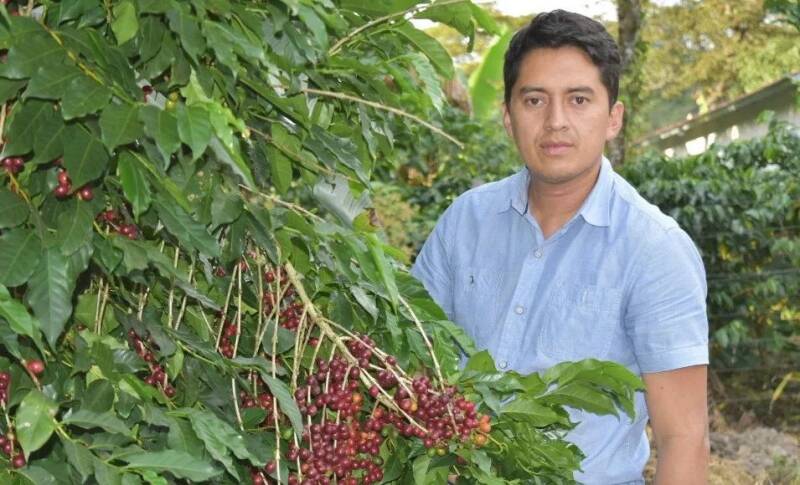What are the characteristics of Honduras's famous sweet orange coffee estate?
Recently, Honduras held the first Coffee Summit in Tegucigalpa, the capital, to provide an exchange platform for representatives of the 33 member states of the Community of Latin American and Caribbean States (CELAC), aimed at promoting agriculture and family economy and regional development.
At this summit, Honduran coffee received a great deal of attention. The quality of its coffee beans has improved year by year around the world. Its export volume ranks third in Latin America and fifth in the world. In fact, coffee beans in Honduras have always been unpopular, all because the early development of the coffee industry in Honduras is slower than that of neighboring countries such as Guatemala and El Salvador.
Coffee was first introduced into Honduras in the late 18th century, and coffee was grown on a small scale in the 19th century. However, due to the country's many mountains, backward transportation construction and lack of ports, coffee is difficult to export and basically produces and sells itself. By the middle of the 20th century, Honduras began to promote the process of industrialization, began to build roads and ports, began to seek international cooperation in the 21st century, joined the Central American Free Trade Agreement, and established cooperative relations with other Central American countries. to promote the country's industrial development.
In addition, the government has created a special official organization for coffee, Instituto Hondureo del Cafe (IHCAFE), which is committed to improving the yield and quality of coffee. Thanks to the topography of Honduras, it has more mountains, lava plateaus and river valleys, making it very suitable for agricultural cultivation such as coffee. By 2011, coffee production in Honduras began to rise, surpassing neighbors such as Costa Rica and Guatemala to become the highest coffee producer in Central America.
In recent years, while maintaining high production, Honduras also pays attention to the development of coffee quality, during which there are many high-quality coffee estates, such as Sweet Orange Manor (El Naranjo). The Sweet Orange Manor (El Naranjo) is located in the Markara area (Marcala) of the province of La Paz in Montesijos (Mentecillos). It has a superior geographical location, rich in natural resources, mountains and river valleys, and a mild and humid climate, which is suitable for the development of agriculture and tourism. The coffee is full of rich fruit and sweet aromas, with lemon and floral flavors. Lemon and fruit aromas are important features, especially peaches and oranges, with lively and bright acidity, velvety texture and a lingering finish.

At present, El Naranjo is managed by Roger Antonio Dominguez Marquez and his wife Carmen Fabiola Fiallos Melendez. It is named Sweet Orange Manor because there are many tall orange trees as shade trees in the manor. For a long time, the owner Roger and his wife Carmen have been working on producing coffee in the Markara area to enhance the community's influence.
Roger, the owner of the estate, was born into a coffee family and developed a strong interest in coffee cultivation from an early age. After his father died, he took over the estate and co-managed it with his wife, Carmen. Up to now, the couple also owns several estates, such as Las Flores, El Guatal and La Cueva. Most of these estates are located in the area of 1300-1500 meters, of which the Sweet Orange Manor is the highest, reaching 1800 meters, making it one of the highest estates in the country, which is currently mainly planted with Catuai and Geisha varieties.
Moreover, they attach great importance to every process of coffee production, adopt very strict quality standards, and constantly check the quality of coffee by sampling from the IHCAFE laboratory. Under their good care, the high-quality coffee produced by these estates has won many awards in the Honduras COE Cup. At the same time, its estate has been involved in the IHCAFE-supported Origin Program (Origin Denomination), dedicated to environmental protection and sustainable production, and to promote the local community and the international impact of Honduran coffee.
For more information about coffee producing areas, please scan the code directly and follow: coffee comments.
Long press the QR code to follow:

Important Notice :
前街咖啡 FrontStreet Coffee has moved to new addredd:
FrontStreet Coffee Address: 315,Donghua East Road,GuangZhou
Tel:020 38364473
- Prev

Bad times! Storms cut off power to 2.1 million households in Sao Paulo state, Brazil
According to Brazilian media reports, according to the Civil Defense Department of São Paulo State, a strong storm accompanied by record strong winds hit the city of São Paulo and its metropolitan area earlier, resulting in at least 7 deaths and power outages for 2.1 million residents and commercial users. Traffic paralysis, business shutdown and inconvenience to residents 'lives. According to, people
- Next

Is raw coconut latte better hot or cold? What details do I need to pay attention to when I use thick coconut milk to kill milk bubbles?
Is coffee better cold or hot? This is an enduring topic, as is fancy coffee. During the summer vacation, Qianjie shared with you a series of coconut coffee that has become popular all over the Internet. The coconut milk (raw coconut) lattes mentioned in it attracted a group of home-based parties to successfully reproduce due to their wonderful taste collision. to
Related
- What grade does Jamaica Blue Mountain No. 1 coffee belong to and how to drink it better? What is the highest grade of Blue Mountain coffee for coffee aristocrats?
- What are the flavor characteristics of the world-famous coffee Blue Mountain No. 1 Golden Mantelin? What are the characteristics of deep-roasted bitter coffee?
- Can I make coffee a second time in an Italian hand-brewed mocha pot? Why can't coffee be brewed several times like tea leaves?
- Hand-brewed coffee flows with a knife and a tornado. How to brew it? What is the proportion of grinding water and water temperature divided into?
- What is the difference between Indonesian Sumatra Mantinin coffee and gold Mantinin? How to distinguish between real and fake golden Mantelin coffee?
- What does bypass mean in coffee? Why can hand-brewed coffee and water make it better?
- Unexpected! Ruixing Telunsu lattes use a smoothie machine to foam milk?!
- % Arabia's first store in Henan opens into the village?! Netizen: Thought it was P's
- Does an authentic standard mocha coffee recipe use chocolate sauce or powder? Mocha Latte/Dirty Coffee/Salty Mocha Coffee Recipe Share!
- What is the difference between Vietnam egg coffee and Norway egg coffee? Hand-brewed single product coffee filter paper filter cloth filter flat solution!

